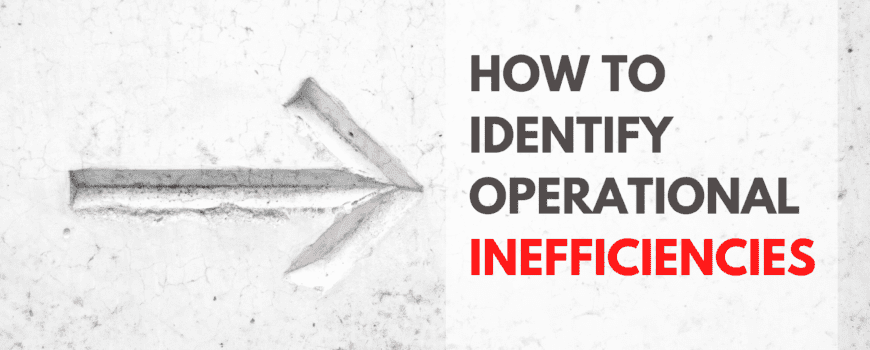The Importance of Choosing the Right Zoho Partner
Choosing the right Zoho partner is critical to making the most of Zoho’s platform and resources. Zoho categorizes its partners by experience and capability into several levels, each offering different benefits for businesses. The main levels include Zoho Partner, Advanced Partner, and Premium Partner. This distinction, though subtle on the surface, makes a considerable difference in how well a partner can meet complex business needs and provide ongoing support.
A Zoho Partner is equipped to offer core Zoho services, usually after completing foundational certifications and training. These partners can support standard implementations and provide essential training. While valuable, these partners may lack the specialized experience or resources to handle highly customized or large-scale projects.
Premium Partners, on the other hand, represent the highest tier within Zoho’s partner ecosystem, having completed rigorous certification requirements that validate their expertise across multiple Zoho products. This includes advanced implementation skills, deep product knowledge, and proven experience with complex, customized configurations. Premium Partners are vetted by Zoho to ensure they can support comprehensive implementations and are frequently required to maintain additional certifications and project experience, demonstrating a commitment to excellence and long-term client success.
Beyond technical expertise, Premium Partners often work directly with Zoho, gaining priority access to Zoho’s support teams and resources. This enables them to resolve issues quickly and stay current on Zoho’s latest product updates and features—benefits that are passed directly to their clients. Choosing a Zoho Premium Partner means investing in a higher level of support, expertise, and reliability, making them the ideal choice for businesses seeking a tailored and scalable Zoho solution.
The Unique Value Premium Partners Bring to the Table
Higher Level of Certification and Expertise
Zoho Premium Partners undergo a rigorous certification process that goes far beyond the foundational training required for other partnership levels. This advanced training and certification require extensive product knowledge across Zoho’s suite, covering specialized functionalities, best practices, and troubleshooting for more complex implementations. Due to this rigorous vetting, Premium Partners offer a higher level of technical and functional expertise, enabling them to deliver nuanced, high-quality solutions for businesses with unique requirements.
As a result of their comprehensive training, Premium Partners are prepared to handle multifaceted implementations involving customized workflows, advanced integrations, and strategic automations across Zoho’s applications. This expertise translates directly into better service quality, as they can anticipate and resolve potential challenges swiftly, minimize implementation delays, and ensure that clients achieve seamless performance with their Zoho applications.
Specialized, Industry-Specific Knowledge
Many Zoho Premium Partners have specialized experience in particular industries, such as healthcare, finance, manufacturing, or retail, allowing them to understand and address unique business needs within these sectors. This specialization not only speeds up the implementation process but also enhances the relevance of the solutions provided. For example, a Premium Partner with a background in healthcare will know how to configure Zoho CRM to support regulatory compliance, patient privacy requirements, and secure data handling.
Premium Partners often back their industry-specific expertise with case studies or success stories from past projects. This experience supports not only faster setups but also tailored configurations that ensure the solutions provided align with operational goals and compliance requirements.
Strategic, Long-Term Collaboration
One of the standout benefits of working with a Zoho Premium Partner is their commitment to long-term collaboration. Premium Partners typically offer ongoing consultation, strategic planning, and scalability support, making them invaluable for businesses that aim to grow and evolve with their Zoho solutions. Unlike standard partners, who may only provide support through the initial implementation phase, Premium Partners continue to act as trusted advisors well after launch.
Premium Partners regularly update their clients on new Zoho features and best practices, proactively guiding them on how to leverage Zoho’s latest innovations to enhance productivity and efficiency. This sustained collaboration allows businesses to stay competitive, adapt to market changes, and continuously optimize their Zoho setup in alignment with strategic goals. With Premium Partners, clients aren’t just investing in a one-time solution—they’re partnering with experts committed to their long-term success.
Expanded Services Only Available Through Premium Partners
Enhanced Customization and Integration Capabilities
Zoho Premium Partners excel in offering highly tailored customization and integration services that go beyond standard implementations. With advanced knowledge of Zoho’s APIs and integration tools, they can seamlessly connect Zoho with other applications, such as ERPs, specialized CRMs, or industry-specific software, creating a unified system that fits the client’s unique workflow. Premium Partners handle complex customizations, from creating multi-step workflows to setting up automated processes, ensuring that Zoho adapts fully to the business’s operational needs. This approach minimizes the need for future modifications, reducing disruptions and increasing the Zoho platform’s adaptability and long-term value.
By customizing Zoho to fit each client’s processes precisely, Premium Partners optimize data flow, reduce redundant work, and maximize efficiency. Their technical expertise allows them to design and implement these integrations smoothly, even in highly specialized setups, where standard partners may lack the experience to support effectively.
End-to-End Project Management
Premium Partners bring structured project management methodologies to every stage of implementation, offering clients a clear roadmap from initial planning through to project completion. This end-to-end management includes defining project timelines, setting budgets, and establishing measurable deliverables that align with the client’s goals. Premium Partners often employ advanced project management tools and techniques to track progress, address challenges promptly, and ensure accountability.
With this structured approach, Premium Partners can reduce project delays and unforeseen expenses, which is particularly valuable for large-scale implementations that require strict adherence to timelines and budgets. The client gains peace of mind knowing their Zoho deployment will be managed by experts who can oversee every detail and keep the project on track.
Higher Level of Dedicated Support and Troubleshooting
A significant advantage of working with Premium Partners is their priority access to Zoho’s internal resources and dedicated support teams. This privileged access enables them to resolve issues quickly and efficiently, as they can directly escalate critical issues to Zoho’s in-house specialists when necessary. This access is particularly beneficial during complex implementations or in the face of technical challenges that require expert intervention.
The support provided by Premium Partners extends beyond simple troubleshooting. They offer proactive monitoring, identifying potential issues before they impact the client’s system, and continually updating the Zoho setup to reflect the latest best practices and security updates. Clients can trust that their Zoho environment is backed by a dedicated team with unparalleled access to resources, providing smoother implementations and long-term reliability.
In summary, Zoho Premium Partners offer services that go beyond standard capabilities by delivering highly specialized customization, comprehensive project management, and elevated support levels. This ensures that clients receive not only an optimized Zoho platform but also a partner committed to their ongoing success.
When Working with a Standard Partner Might Fall Short
Handling Complex Project Needs
Standard Zoho Partners are equipped to implement Zoho’s core features and support standard business requirements, but they may lack the advanced technical expertise required for complex, high-stakes projects. For instance, a business looking to integrate Zoho with another CRM system or with custom-built software could encounter challenges if working with a standard partner. Such integrations often require knowledge of APIs, extensive customization, and rigorous testing to ensure data flows seamlessly between systems. Without the high-level technical knowledge and experience that Premium Partners possess, these integrations can lead to disruptions, data silos, or inconsistencies in information.
Similarly, projects involving large data migrations, advanced automation, or cross-platform integrations may be beyond the scope of many standard partners. Premium Partners, on the other hand, have the skills and tools to tackle these challenges head-on, ensuring a smoother and more reliable integration process. Their familiarity with Zoho’s extensive APIs and third-party applications, along with their direct access to Zoho’s development teams, makes them uniquely equipped to handle such high-complexity projects effectively.
Scaling for Multi-Location or Enterprise-Level Needs
Scaling Zoho across multiple business locations or adapting it for an enterprise-level organization is another area where Premium Partners bring substantial value. Standard partners may struggle to configure Zoho in ways that meet the varied needs of a large, multi-location company, such as accommodating distinct regional workflows, synchronizing data across locations, or maintaining uniformity in user permissions. Premium Partners can not only configure Zoho to support these complex requirements but also advise on the best practices for scaling, security, and compliance in large organizations.
For example, a Premium Partner might help a retail chain with dozens of stores by setting up Zoho to centralize inventory management while allowing each store to handle local stock control and customer data independently. This level of nuanced configuration requires an understanding of how to balance centralized control with localized flexibility—a balance Premium Partners are trained to achieve. As the business grows, Premium Partners can further help with advanced reporting, ensuring management has real-time visibility into performance across locations.
In sum, while standard partners can support basic Zoho implementations, Premium Partners offer the depth of knowledge and hands-on experience necessary for complex projects, high-level integrations, and large-scale rollouts. Working with a Premium Partner enables businesses to fully leverage Zoho’s capabilities, providing a scalable, resilient, and highly customized system that supports both present and future needs.
Investing in Expertise for Long-Term Growth
Choosing a Zoho Premium Partner is much more than an added cost; it’s an investment in expertise that enhances strategic growth and ensures a maximum return on your Zoho solutions. Premium Partners bring a higher level of knowledge, customization capabilities, and access to Zoho’s resources that allow for smoother implementations, fewer disruptions, and more tailored configurations. By working with a Premium Partner, businesses gain not just a service provider but a trusted advisor committed to their success over the long term.
As companies look toward their future growth, partnering with a Premium Partner allows them to make decisions that won’t just meet their needs today but will scale as they expand. With the ability to handle advanced integrations, industry-specific customizations, and multi-location support, Premium Partners make sure Zoho remains a valuable asset that evolves with the business. In short, investing in a Zoho Premium Partner is a strategic choice that empowers organizations to make the most of their Zoho platform.
ZBrains is a Zoho Premium Partner with over 12 years experience analyzing business challenges and implementing Zoho solutions. From large complex implementations to simple rollouts ZBrains knows what to do to ensure your business has what it needs to thrive with Zoho.










 Zoho Sign helps manage paperless workflow for digital signatures, allowing you to close deals faster![/caption]
Zoho Sign helps manage paperless workflow for digital signatures, allowing you to close deals faster![/caption]




















 Streamline all of your back office duties with Zoho Books and organize all of your transactions in one place. If this isn’t the solution for you,
Streamline all of your back office duties with Zoho Books and organize all of your transactions in one place. If this isn’t the solution for you, 

 As a decision maker in the manufacturing industry you need to introduce and foster ideas and methods to increase sales, manage orders and the warehouse, and more. You do all of this while trying to keep a pulse on the end-to-end tracking of your process, too.
As a decision maker in the manufacturing industry you need to introduce and foster ideas and methods to increase sales, manage orders and the warehouse, and more. You do all of this while trying to keep a pulse on the end-to-end tracking of your process, too. You need visibility to what’s being produced, purchased – and when – in order to make the best inventory management decisions. And if you can get the information in a tidy dashboard with less data input, even better!
You need visibility to what’s being produced, purchased – and when – in order to make the best inventory management decisions. And if you can get the information in a tidy dashboard with less data input, even better! Untangling from daily business operations and on-the-fly problem solving in your organization can be a daunting undertaking. In other words, it’s time to start solving those issues more quickly. You want to resolve them completely so you have time to devote to innovation.
Untangling from daily business operations and on-the-fly problem solving in your organization can be a daunting undertaking. In other words, it’s time to start solving those issues more quickly. You want to resolve them completely so you have time to devote to innovation.